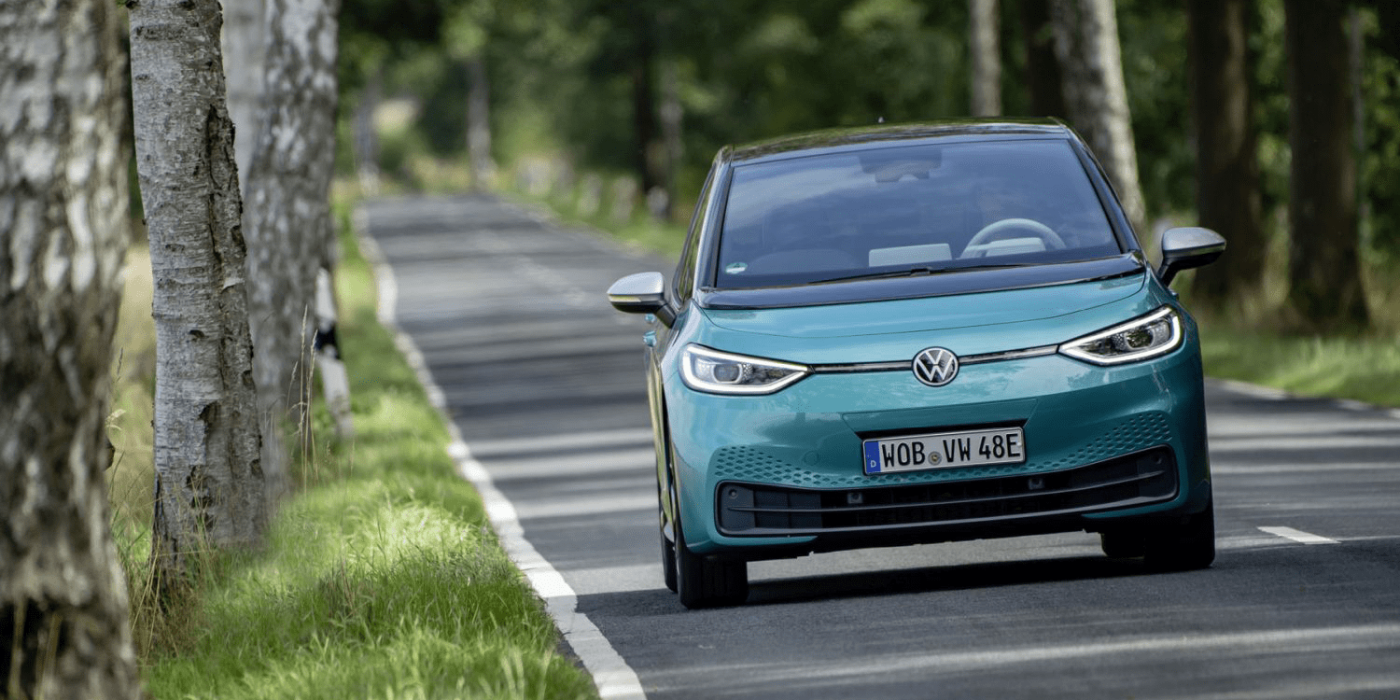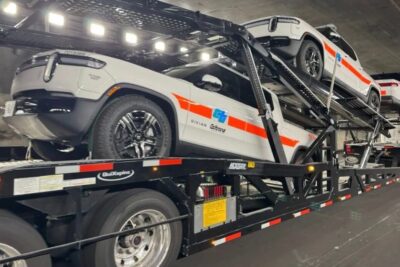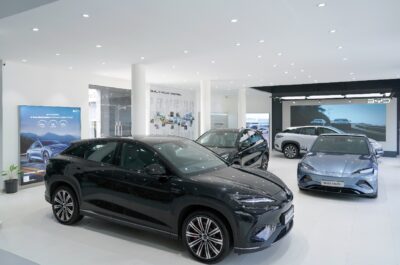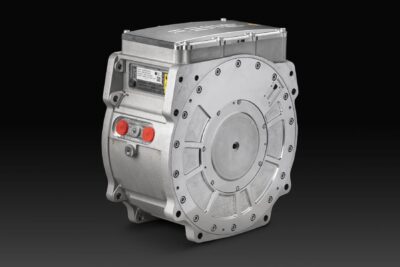Volkswagen solidifies stance on battery-electric cars
Volkswagen cements its course for battery-electric vehicles as the company put its weight down in a statement concerning a bill from Germany’s Environmental Ministry drafted to implement the EU directive on renewable energies in transport.
In the statement first seen by Sueddeutsche Zeitung, VW also opposes Germany’s industry association VDA in no unclear terms and as their largest member. We dipped into the debate around alternative fuels and hydrogen in the (electric?) auto nation.
* * *
The Sueddeutsche Zeitung (SZ) newspaper received both statements from VDA and Volkswagen AG following a call for comments by the Ministry at the end of September. Both organisations gave their views on proposed legislation designed to bring Germany in line with the EU’s expectations on the use of renewables when it comes to the transition in transport.
While this is part of the larger Green Deal, the EU Commission recently adopted the EU Strategy for Energy System Integration and Hydrogen. The former tackles charging infrastructure and grids, while the H2 strategy focusses on long-haul and heavy-duty vehicles and hydrogen infrastructure. The aim is to propose concrete policy and legislative measures at the EU level “to gradually shape a new integrated energy system while respecting the differing starting points of Member States.” Only these may also differ internally as this view to Germany will show.
A divide in Auto nation
Electric cars being charged with energy from renewables is the simple integration – if not always easy to implement. Other discussions involve the potential of hydrogen as well as alternative fuels such as CNG.
And here is where the spirits divide among the German industry. According to Volkswagen, in their statement, “the so-called potential of these alternatives for liquid fuels is generally massively overestimated”. The company adds the production of synthetic fuels from surplus renewable energies was “complex, cost-intensive, not very climate-efficient and with low efficiency”.
Europe’s science academies recently reached a similar conclusion in their joint advisory body, the European Academies’ Science Advisory Council (Easac). Sueddeutsche suggests, the researchers warned that the production of synthetic fuels is “inherently inefficient”. In the foreseeable future, this means that the use of such fuels will probably be limited to applications “that are difficult to electrify” such as heavy-duty vehicles or those in the aviation and shipping sectors.
But not cars. In the statement seen by Sueddeutsche, VW declared considerations to produce green hydrogen from renewable energy for the sake of powering cars, to be nothing but “nonsensical”. Hydrogen was “much too precious” for individual mobility by car and better suited to restructure industries such as steel, chemicals or cement, according to Volkswagen.
Not so for VDA, the lobby organisation that counts VW as its largest member but opposes to their reasoning. The VDA in its statement sent to the German government and the SZ considers the proposed targets too low. They demand to see a higher percentage of hydrogen and synthetic fuels than those so far envisaged in the draft bill. The association instead believes a use “in all transport applications” possible.
Hydrogen versus or with battery-electric mobility
At the heart of the discussion is, of course, the future of combustion engines (or bastards and bridges of hybrids thereof) but also, the seemingly important question whether hydrogen or batteries will make the race to drive personal transport, that is cars and not commercial vehicles. Volkswagen had dubbed the issue of technological clarity already in March 2019. The company, still rattled by the diesel scandal, had also begun to make real noise around the upcoming MEB platform and push for electric vehicles.
Volkswagen has since been working to make their course clear and on getting the rest of the German industry to follow in its track. Executives of VW, BMW and Daimler back then had appeared to agree on a common approach towards battery-electric mobility with joint statement made following a call. In the coming decade, electric mobility would be the only technology to enable carmakers to comply with environmental laws in the EU, the Germans claimed, also assuming that fuel cell cars would not be market-ready before then – or at least not theirs.
Of course, there had been different views around, taken in particular in Asia with Toyota, Hyundai and Honda. Volkswagen has since had Audi looking into fuel cell technology as well with Porsche apparently also considering synthetic fuels, and Daimler had made advances in hydrogen territory more than once.
Nonetheless, the Group here repeats its push for battery-electric cars – and funding for charging infrastructure – in the current climate political climate in which the EU has become more daring in pressing action. The Commission, for example, considers tightening the CO2 limits for cars again as proposed in September.
While Volkswagen is not among the four other carmakers who have already reached their emission targets for 2020, Chairman Herbert Diess has voiced support for general climate measures before. He demanded that “the mineral oil tax should be rededicated to a CO2 tax” earlier this year in an almost seminal speech. A price of 100 euros per tonne of CO2 is “not outrageous,” Diess said at a New Year’s reception of the company in Brussels. Company spokesperson Dr Thomas Steg updated the demand at a conference in September saying, “From Volkswagen’s point of view, Europe-wide a floor price of 60 euros per ton CO2 in 2023 is key. And floor price means, ETS and non-ETS sectors.”
The German government’s climate package only accounts for 25 euros per tonne from 2021. With a clear price signal, Diess said, it would be possible to persuade industry and private consumers to do more without carbon dioxide emissions.
The VW boss also criticised the high proportion of coal in power generation, especially in Germany and Eastern Europe, given the goals of the Paris Climate Agreement as reported. Seven of the ten largest carbon dioxide emitters were in the Federal Republic of Germany, he said earlier this year. And again, Steg echoed the thoughts of his Chairman when telling the audience “For us at Volkswagen, it is very clear that sustainable mobility in Europe is electric.”
“And, for any push to electric transport, clean power generation is ideal, also because “the switch to electric mobility cannot be credibly communicated if the power supply continues to rely primarily on coal,” added Diess.
The latest statement published in parts by Sueddeutsche, states accordingly that battery-electric mobility “already provides an effective, efficient, low-cost technology for cars that will help them achieve the climate goals of the future,” which is why VW largely welcomes the draft from the Ministry of the Environment. The Ministry too, sees BEVs as “the most efficient alternative” in the passenger car sector.
For Volkswagen, their point is made. It remains to be seen how far the wider industry is prepared to go. BMW has been seen trying to make advances in fuel cells with CEO Oliver Zipse wishing to see the “expansion of the hydrogen filling station infrastructure” for cars and trucks. Bosch would even like to see synthetic fuels to stay and in Germany statements around the so-called eFuels have flared up higher recently, but we will spare you these views at this stage.
sueddeutsche.de (in German)





6 Comments